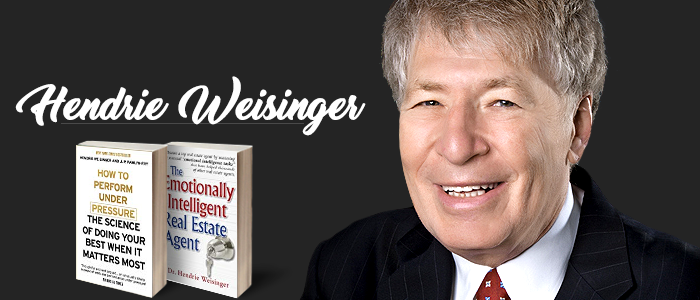It’s obvious why we want to make good decisions. Yet, it is also obvious that too many people make too many wrong decisions, from taking the wrong job, marrying the wrong person, to selecting the wrong college. How does this happen?
Recent books has made “cognitive biases” the frequent culprit but I have found a major cause for poor decisions is the tendency to listen to the advice of others instead of using the natural intuitive decision makers that Mother Nature has provided to all of us. Using your natural decisions makers is the act of applying intuitive decision-making. Here’s how:
1. WATCH YOUR FACIAL EXPRESSIONS
Use your facial expressions when making an important decision. Emotions are directly linked to facial expressions. Before an important decision, stand in front of a mirror and think of the decision you are to make. Does your face show fear, anger, happiness, or anxiety? If your face does not look happy or satisfied when you think about the decision you are to make, you better think twice, because you will be ignoring your instincts.
I had a client, a young lady do this who was about to become engaged. When she spoke about her engagement, she said it was right for her, but when she saw how she looked in a mirror, when she was discussing her relationship, she opted out and soon came to realize that she would of been making a huge mistake. Her facial expressions helped her realized that she was fooling herself. Later on, she told me that deep down, she felt something was wrong, but tried to convince herself otherwise because she didn’t want to hurt her boyfriend. The mirror on the wall helped her become the fairest of them all.
2. IT’S NOT WHAT YOU SAY BUT HOW YOU SAY IT.
Listen with your 3rd ear…the practice of “listening to your voice,” is based on the fact that sound carries emotion, which is why some sounds of music make you enthusiastic, others scared, others depressed.
When a patient would tell me they were feeling great or happy about something, I would often notice that their voice communicated the opposite. You say you are happy but you don’t sound happy, or enthused.
Talk about a decision into a tape recorder or out loud and ask yourself, “how do I sound” often brings forth the incongruence between what a person says and what is really going on. Sounds of silence or when the person cannot talk about their decision enthusiastically often indicates not listening to one’s instincts/intuitions.
3. ACTIONS SPEAK LOUDER THAN WORDS
motions are complex systems with three components: thoughts, physical arousal, behavior. Many times, with our thoughts, we “lie to ourselves,” but our behavior speaks the truth. You might tell yourself you have found the perfect mate, that the uncomfortable feeling is just your normal nervousness, but your behavior will speak the truth. One woman told me she found the perfect mate, but when I pointed out that her behavioral avoidance of sex didn’t match her thoughts, she finally confessed that she felt she knew she was kidding herself. Observe your behavior and if it doesn’t match what you say or feel, think about why and you will get closer to your intuitiveness for helping you decide what action to take.
4. VISUALIZE & FEEL THE OUTCOME OF YOUR DECISION-MAKING
Many times, when we are anxious (uncertain) about a decision we have to make, we can help ourselves by visualizing and feeling the outcome if we were to decide one way or another. Ask yourself, “How would I feel in year if I go down this path? Answers of Joy, engagement, interest, are telling you it is a path to take and that you are in turn with your nature. If the answers are different, you are going against your instincts–the “bad feelings” are saying, “This isn’t for you. Don’t do it.”
Decision- making is a task for life. Now you can use Mother Nature’s intuitive decision makers to help you make your best choices.
ABOUT DR. HENDRIE WEISINGER
Dr. Hendrie Weisinger is a celebrated, influential, world renowned psychologist. A New York Times bestselling author, he is a leading authority in the application of Emotional Intelligence, an expert in Anger management, and the originator of the highly regarded techniques of Criticism Training, and the originator of the emerging new field, pressure management. Dr. Weisinger is the author of many successful books, including: Nobody’s Perfect, Anger Workout, Anger at Work, Emotional Intelligence at Work, The Power of Positive Criticism and the New York Times best-selling book Performing Under Pressure. Dr. Weisinger’s latest book, The Genius of Instinct introduces the principles of evolutionary psychology to everyday life.
